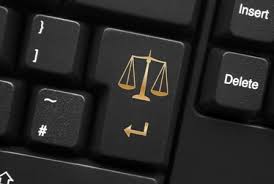French IT Law
In France, the whole area of law encapsulated by the English expression “IT law” would tend to come within the general concept of what is known in French as the “NouvellesTechnologies de l’Information et de la Communication)” or “NTIC” which might perhaps be translated as “New Information and Communication Technologies”.
NTIC may not however be characterised as a standalone area of French law such as, say, Civil law or Commercial law; but instead this area of law would normally relate to specific modifications or adaptations (sometimes substantial, sometime relatively minor) of a great number of existing fields of French law.
In chronological terms, it could be held that the first area of law concerned by NTIC is that of French patent law which was, as in the US and elsewhere, the bulwark relied upon by most of the inventors and manufacturers of new devices until World War II.
During the fifties, with the development of early software, and contrary to what we understand was the case in the USA, a certain number of patents were granted for software in Europe; but in France protection, at least from the perspective of the inventor, is be found in the French legal concept of “droit d’auteur ” which is similar to “copyright” in common law but is not however the direct and exact equivalent.
However, the really major sea change in France came about in 1978 with the promulgation of the law known as the “Loi informatique et libertés” being a new statute essentially aimed at protecting individual freedoms and the creation thereby of the “Commission nationale de l’informatique et des libertés” or CNIL which might be translated as the “National IT and Freedom Commission” or perhaps more contextually “The French Data Protection Authority”
This law together with the 95/46/EC European Directive (currently in the process of being amended) constitute the principal sources of law applicable to the IT field in France and different from many other areas of French law there is no “Code de l’informatique” or codified statute.
It is estimated that today some 60 to 70 % of the data assets of French companies are in dematerialised form, for example, accounting and financial data, IT systems, software, networks etc.
The areas where a French lawyer could become involved might include
- Security and protection of data
- Trade mark and patent protection and/or litigation
- Passing off and illegally copying software
- Hacking of IT systems, website, emails
- Granting of software licences
- Management of digital rights
There are also of course a number of areas of French law where IT issues might play an important role, for example French Employment law where questions such as the following need to be dealt with : –
- Privacy of employee emails
- Access by employer to employee’s communications generally
- Use of office IT for personal reasons e.g. betting, pornography
- Sound and/or video surveillance of employees
- Evidential value of recordings (sound or video)
In this regard, there is an interesting decision of the Cour de cassation (France’s Supreme Court) dated 9 July 2008 which holds that toutes les connexions internet effectuées par un salarié depuis son poste et durant ses horaires de travail sont présumées avoir un caractère professionnel.
Which might be translated as:-
- all internet connections made by the employee from his work station and during his working hours are presumed to be business related
That said, the fact that information is collected by the employer must be formally drawn to the attention of the employees and their representative bodies.
Moreover, the fact of collecting and stocking such information must be formally reported to the CNIL.
There are also a number of interesting case law decision relating the freedom of expression of the employee, dealing, for example, with blogs and the content of email messages.
It is also self evident that e-commerce plays a major role in the world of NTIC, including the regulation of ISPs, electronic signatures, mobile telephones, the requirement to conserve data for a number of years etc.
The area of French IT law is thus vast, even without including special areas such as the provisions relating to anti-terrorism and espionage.
For further information on any of the above areas of French law, please click here.
However, the really major sea change in France came about in 1978 with the promulgation of the law known as the “Loi informatique et libertés” being a new statute essentially aimed at protecting individual freedoms and the creation thereby of the “Commission nationale de l’informatique et des libertés” or CNIL which might be translated as the “National IT and Freedom Commission” or perhaps more contextually “The French Data Protection Authority”
This law together with the 95/46/EC European Directive (currently in the process of being amended) constitute the principal sources of law applicable to the IT field in France and different from many other areas of French law there is no “Code de l’informatique” or codified statute.
It is estimated that today some 60 to 70 % of the data assets of French companies are in dematerialised form, for example, accounting and financial data, IT systems, software, networks etc.
The areas where a French lawyer could become involved might include
- Security and protection of data
- Trade mark and patent protection and/or litigation
- Passing off and illegally copying software
- Hacking of IT systems, website, emails
- Granting of software licences
- Management of digital rights


There are also of course a number of areas of French law where IT issues might play an important role, for example French Employment law where questions such as the following need to be dealt with : –
- Privacy of employee emails
- Access by employer to employee’s communications generally
- Use of office IT for personal reasons e.g. betting, pornography
- Sound and/or video surveillance of employees
- Evidential value of recordings (sound or video)
In this regard, there is an interesting decision of the Cour de cassation (France’s Supreme Court) dated 9 July 2008 which holds that
toutes les connexions internet effectuées par un salarié depuis son poste et durant ses horaires de travail sont présumées avoir un caractère professionnel
Which might be translated as:-
all internet connections made by the employee from his work station and during his working hours are presumed to be business related.
That said, the fact that information is collected by the employer must be formally drawn to the attention of the employees and their representative bodies.
Moreover, the fact of collecting and stocking such information must be formally reported to the CNIL.
There are also a number of interesting case law decision relating the freedom of expression of the employee, dealing, for example, with blogs and the content of email messages.
It is also self evident that e-commerce plays a major role in the world of NTIC, including the regulation of ISPs, electronic signatures, mobile telephones, the requirement to conserve data for a number of years etc.
The area of French IT law is thus vast, even without including special areas such as the provisions relating to anti-terrorism and espionage.